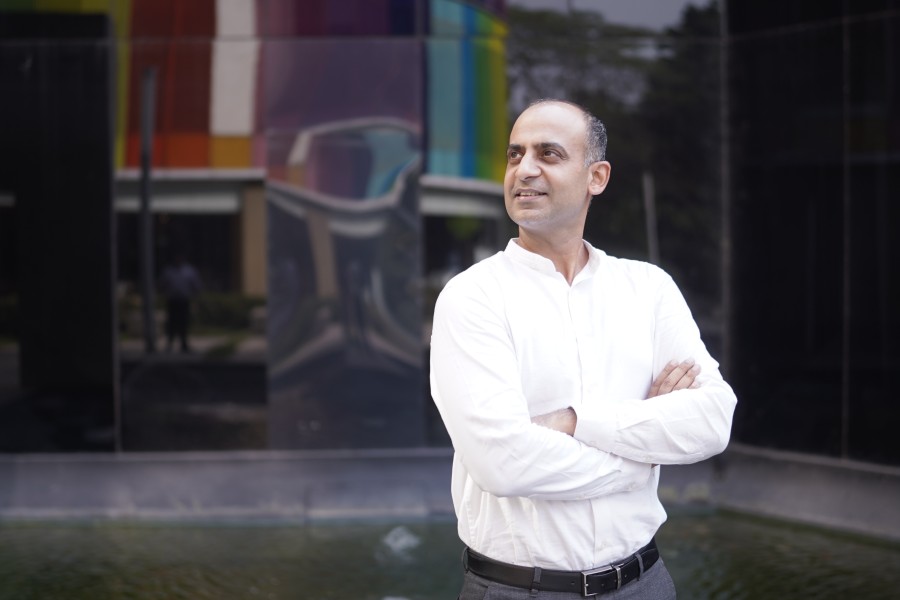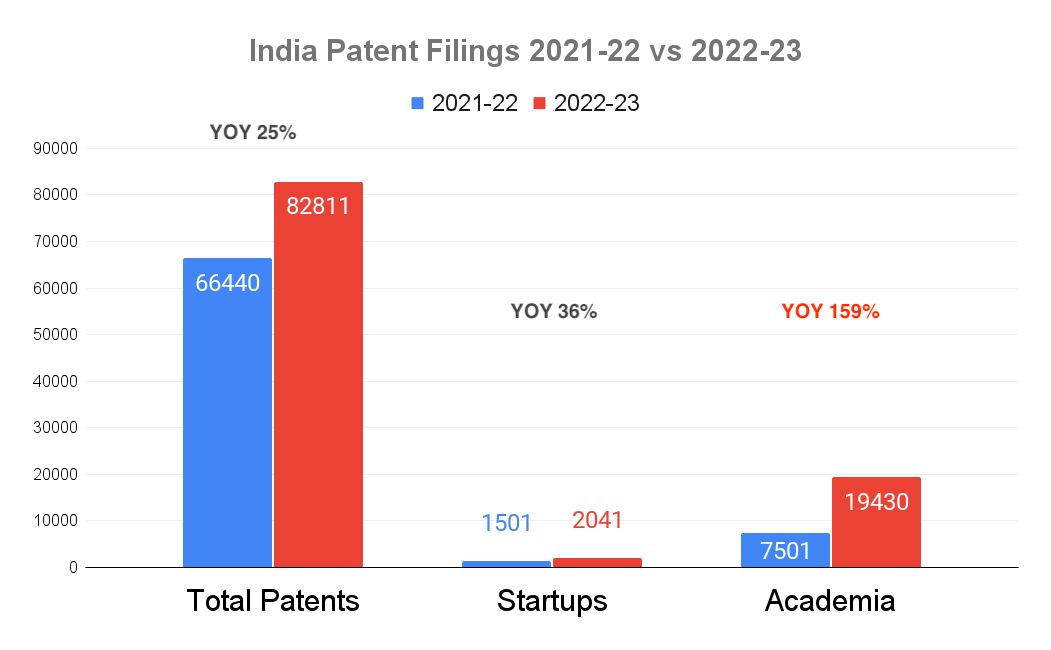
Issue date: 1st August, 2024
Boosting Technology Transfer in Academia
Lead Story

By Dr. Rahul Kapoor (Founder, Turnip Innovations)
Technology Commercialisation - The new metric to crack for academia
As per the latest annual report of IP India Office, academic patenting is up by a whopping 159%. From 7500 patent filings in 2021-22, academic institutions have filed over 19,400 patents in 2022-23.

By all measures, it appears that India is set to enter an era of patents. India is poised for exponential growth in patenting in line with China from the early 2000s.
The unprecedented efforts in the last 5 years by the government, accreditation bodies and action taken by academic institutes is paying off.
The next big challenge for academic institutions will be IP commercialisation and tech transfer. This article highlights three practical ways academic institutes can boost tech transfer and commercialisation.
1/ Focus on commercialisation upfront
It is better to align research efforts in the direction of commercialisation upfront than to find partners after a patent is granted.
Institutes can sign research agreements with industry partners with provisional transfer of IP created during the research process. Such agreements can be no-cost tech transfer agreements with scope to negotiate license details after IP is created. This way, industry partners are onboard before substantial effort and cost is spent on IP creation.
This can be in the form of collaborative research, sponsored research or consultancy research. The emphasis should be to have a signed agreement in hand!
2/ Focus on Patent Portfolios
Companies that are patent intensive have sophisticated patent portfolios. It is rare that a singleton patent within a technology field is deemed truly valuable.
Modern patenting involves filing several patents to protect the core part of the invention, as well as the peripheries, making it difficult for competitors to enter a technology domain. This phenomenon is also called a "patent thicket", or a dense web of IP rights creating a fence around the core invention.
The nature of innovation is such that it never stops. As new challenges appear, new improvements are continuously added to older solutions. Academic institutes should consider filing multiple follow-on patents to a core invention. This will create a portfolio of closely related patents that will be much more mature and valuable in the market.
3/ Hold an annual industry-academia summit
Marketing is a huge part of technology commercialisation. Strengthening the industry-academia interface is the best long term investment academic institutes can make. At the very least, institutes should conduct one annual event focussing on demo days and innovation fairs to showcase technologies to investors and industry partners.
Regular feedback from industry can nudge research efforts in the right direction. It is the onus of the technology transfer office (TTO) to conduct regular industry lectures, visits and interactions around research and innovation!
During my PhD studies, I remember when the technology transfer office asked me to summarise my doctoral dissertation in the form of a press release. I found the exercise very difficult because explaining your complicated research in simple terms can be difficult for the wider audience.
But it was a valuable experience. One that all inventors must go through. Successful technology transfer almost always involves a passionate inventor who develops the necessary marketing skills.
Quote of the Week
Bill Gates: "We always overestimate the change that will occur in the next two years and underestimate the change that will occur in the next ten. Don't let yourself be lulled into inaction."
Upcoming Events
[Tue, 6th Aug, 2024] PG Diploma in Intellectual Property Rights - Andhra University has launched a One Year Post Graduate Diploma in Intellectual Property Rights for academic year 2024-25. Add a valuable diploma to your profile from a prestigious University! (Course Brochure)
[Mon, 12th Aug, 2024] Annual Independence Day Webinar - Mr. Nitin Sharma, Senior Director and Technology Counsel at Qualcomm, will speak on the topic: Creating IP Led Academic Spinoffs (Free registration)
[Ongoing] L2Pro Platform - Qualcomm and National Law University, Delhi have collaborated with CIPAM, DPIIT to provide a broad range of courses on Intellectual Property Rights: (Free registration)
Enjoyed the newsletter? Please forward to a friend or colleague. It only takes 10 seconds! Creating this one took 2 days!
New to The Innovation Post Newsletter? Signup